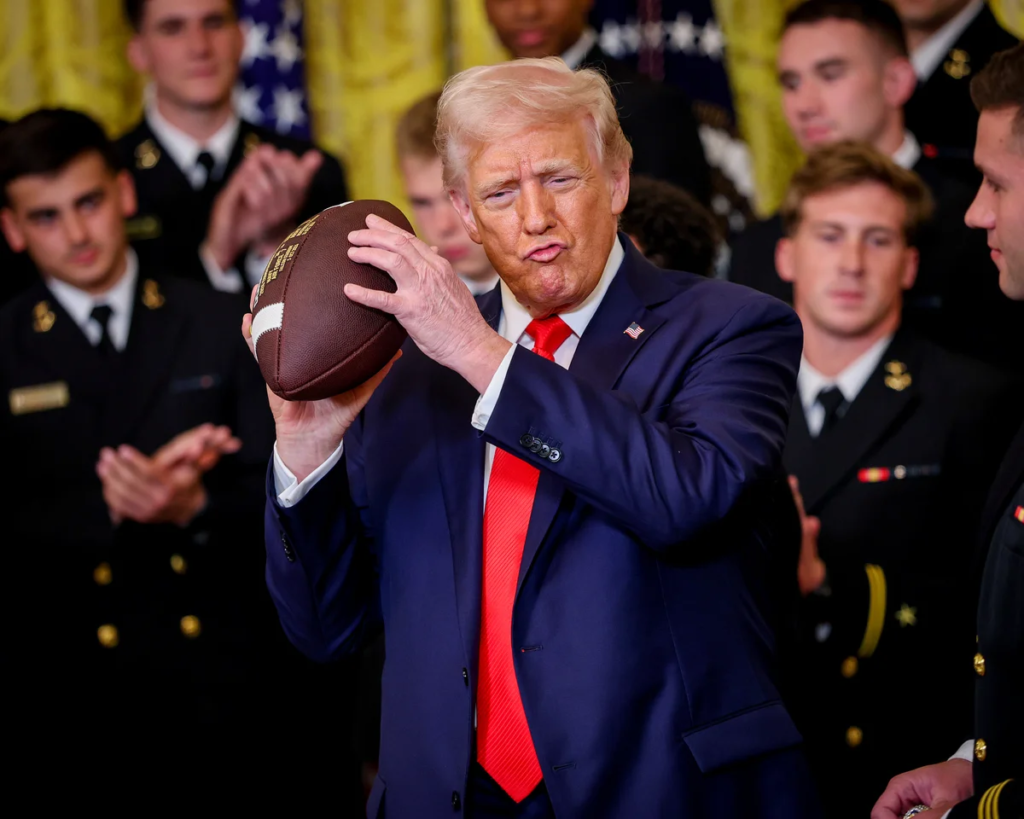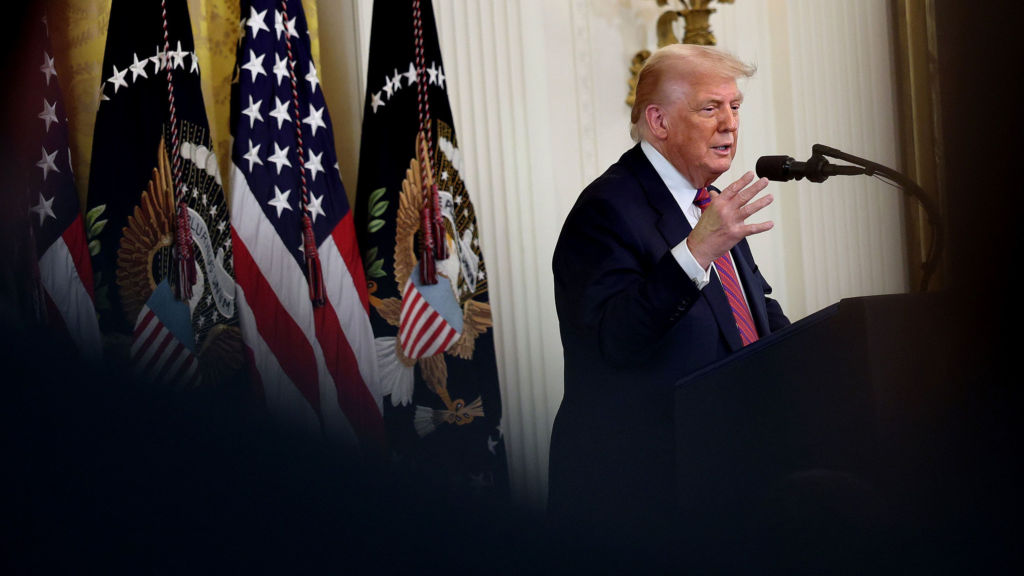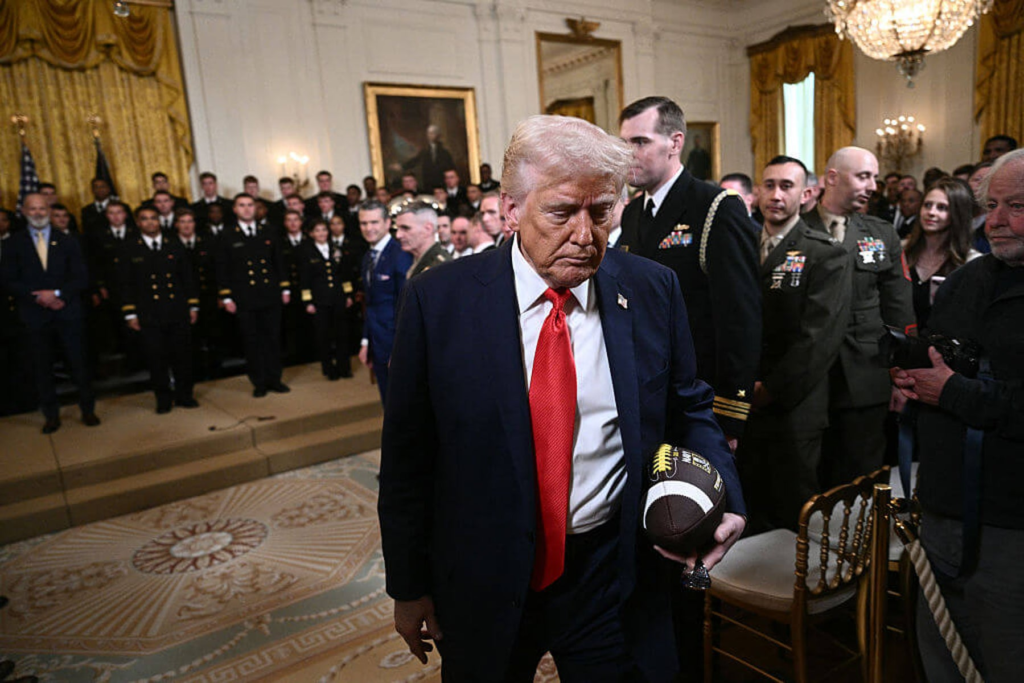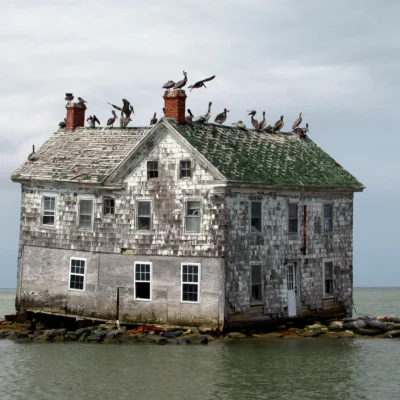In a move set to change the landscape of college sports in America, President Trump has signed a new executive order addressing key issues related to Name, Image, and Likeness (NIL) rights and pay-for-play models. The order, which comes amid ongoing debate over student-athlete compensation, aims to establish national guidelines and restore fairness across collegiate programs.
The executive action is designed to balance athlete rights with the tradition of amateurism and could significantly impact college athletes, universities, and sports governing bodies like the NCAA. As name, image, and likeness deals have become more common and more profitable, Trump’s latest move reflects growing political attention on the future of college athletics.
This decision marks a significant turning point for college athletes nationwide, who are now navigating a new era of branding, money, and eligibility.
Why President Trump Issued the Executive Order
President Trump’s executive order follows months of public discussion and pressure from both sides of the political aisle. While many believe student-athletes deserve to benefit from the billions of dollars their sports generate, others argue that unfettered commercialization undermines amateur athletics.
The order cites concerns about inconsistent NIL rules across states, potential exploitation by third-party agents, and widening gaps between powerhouse athletic programs and smaller schools.
The new guidelines seek to create a uniform national standard for NIL and pay-for-play policies, reduce the influence of corporate sponsors over recruitment, and protect student-athletes from unfair contracts.
The Trump administration believes that this action helps ensure fairness, educational focus, and sustainability in college athletics while giving athletes the freedom to earn within limits.

What the Executive Order Covers
The executive order outlines several key policies that all NCAA institutions must now follow:
- National NIL Oversight Board
A new federal board will monitor NIL deals and ensure athletes receive transparent, fair, and legal compensation. This board will consist of legal experts, former athletes, and education leaders. - Cap on NIL Earnings
While athletes are allowed to profit from endorsements, the order sets a national cap on NIL income for student-athletes to maintain amateur status. This aims to prevent colleges from using endorsement deals as backdoor recruitment tools. - Ban on Direct School Payments
The executive order bans direct pay-for-play compensation from colleges to athletes. Schools may not offer salaries or appearance fees as part of athletic scholarships. - Mandatory Financial Literacy Training
All student-athletes engaging in NIL deals must attend financial literacy workshops to better understand taxes, contract terms, and long-term wealth planning. - Uniform NIL Contract Regulations
Contracts signed by student-athletes will now require review and registration with the federal board, protecting them from predatory business agents or unfair legal terms.
Impact on Student-Athletes
The order offers both opportunities and limitations for student-athletes. On the one hand, athletes can still profit from their personal brand, sign endorsement deals, and earn money through social media or sponsorships. On the other hand, the cap on earnings and oversight process adds regulation to what has become a rapidly growing industry.

Athletes attending schools in states that previously had more generous NIL laws may now face adjustments. However, the administration argues this ensures equity across programs and regions.
Those most affected include high-profile players in football and basketball who have secured six-figure NIL contracts. But the order still allows most athletes to benefit reasonably, especially in smaller sports where corporate influence is less significant.
What This Means for Colleges and Universities
For colleges, the executive order introduces more structure and legal clarity. Universities are now required to register all NIL activity involving their student-athletes and provide educational resources to help athletes make informed choices.
The ban on direct pay-for-play means that schools cannot promise salaries or game-based bonuses during recruiting. This is expected to level the playing field for less-funded athletic programs.
Additionally, schools must report NIL data annually to ensure compliance with the federal standards. This adds accountability but also increases the administrative burden on athletic departments.
NCAA and State Laws in Conflict
The order may now come into conflict with several state laws that currently allow broader NIL freedoms. States like California, Texas, and Florida had passed laws that encouraged more aggressive NIL strategies, including larger endorsement deals and fewer limits on third-party agents.
Trump’s executive order overrides conflicting state laws, which may result in court challenges or requests for legislative exemptions. However, the administration states that national consistency is needed to ensure fair play across the NCAA.
The NCAA, which had already begun relaxing its NIL rules, will likely now adjust its policies to align with the federal mandate or risk legal action.
Political Reactions and Public Response
The executive order has sparked strong responses from lawmakers, athletic associations, and advocacy groups. Supporters say it brings much-needed order to a chaotic NIL marketplace, while critics argue it limits athlete freedom and gives the federal government too much control over college sports.
Some say the order is a political move to gain favor with traditional sports fans and conservative voters, while others believe it’s a necessary step to protect young athletes from exploitation.

Parents, coaches, and alumni have expressed mixed feelings, with many calling for better education and protections rather than financial restrictions.
What’s Next for College Sports
While the executive order takes effect immediately, it includes a 90-day adjustment period for schools and athletes to comply. During that time, federal and NCAA officials will work together to develop a shared enforcement strategy.
Legal challenges are expected, particularly from athletes and schools in states with looser NIL policies. Some advocacy groups may seek to block the cap on earnings, arguing it violates free market principles.
Despite the backlash, President Trump’s administration says it will remain firm on upholding fairness and transparency in college athletics.
As the landscape continues to evolve, many wonder whether this executive order is the start of a broader federal regulation system for college sports or just the beginning of a new political and legal battle.
Conclusion: Trump’s Order Reshapes the College Sports Future
President Trump’s executive order on college sports, NIL rights, and pay-for-play marks a historic shift in how student-athletes are treated under federal law. By introducing new regulations and oversight, the administration hopes to protect fairness and restore the original purpose of amateur competition.
While the effects will unfold over time, one thing is clear: college sports are no longer just about the game. They are now part of a growing national conversation involving money, power, education, and equality. As schools and athletes prepare for a new season, they’ll be doing so under a very different set of rules that could define the future of American college athletics for years to come.
Read more – Tesla Q2 Earnings Dip Raises Doubts on Robo-Taxi Timeline






